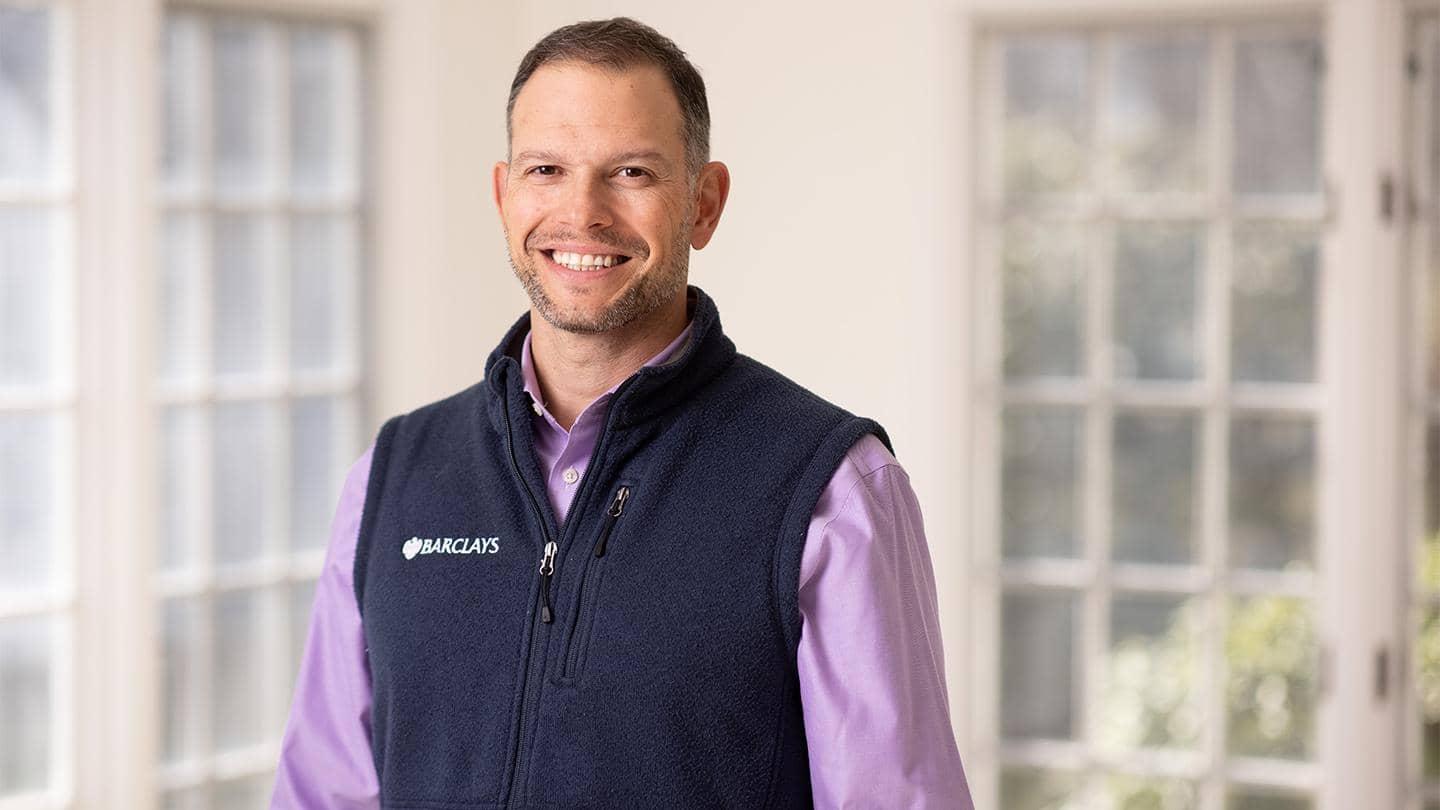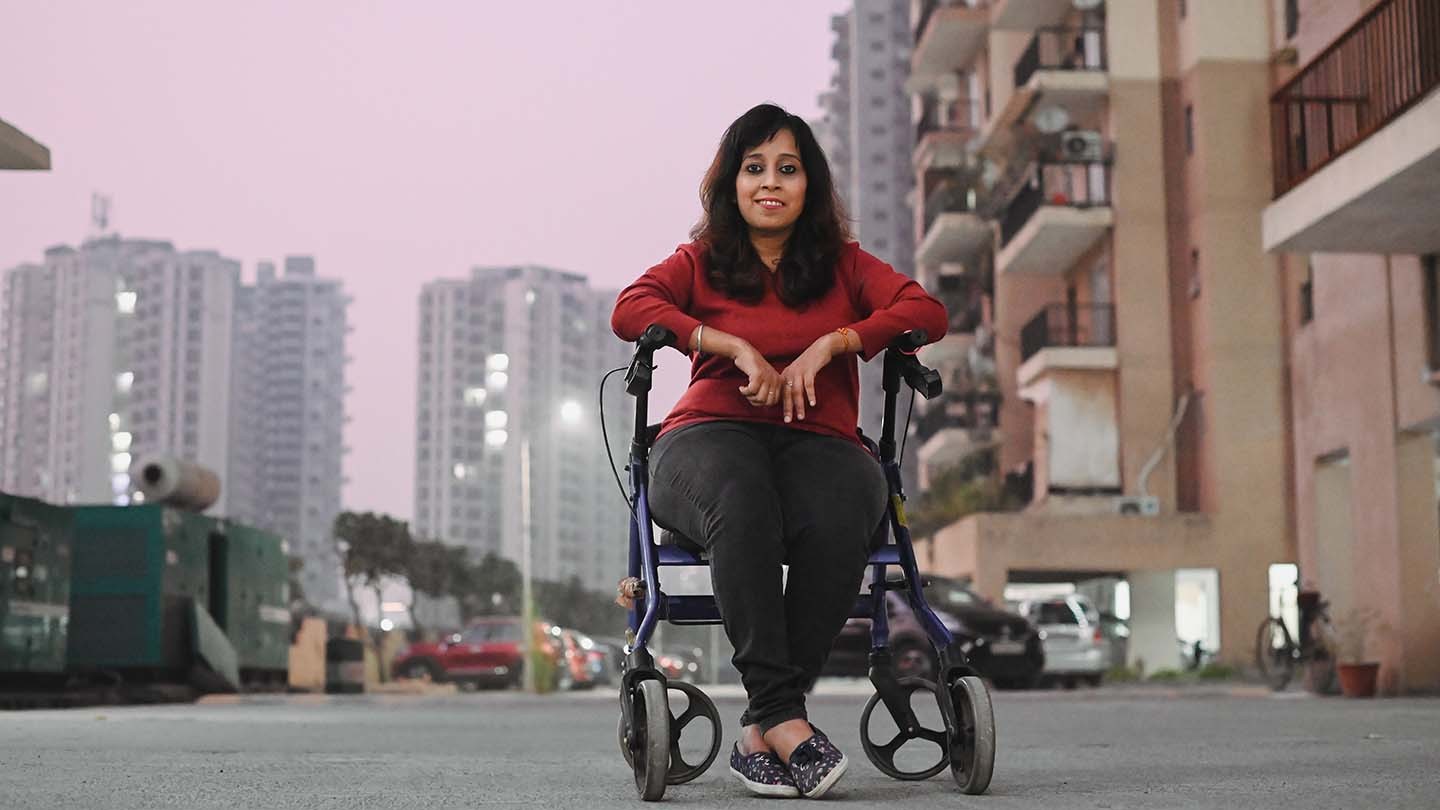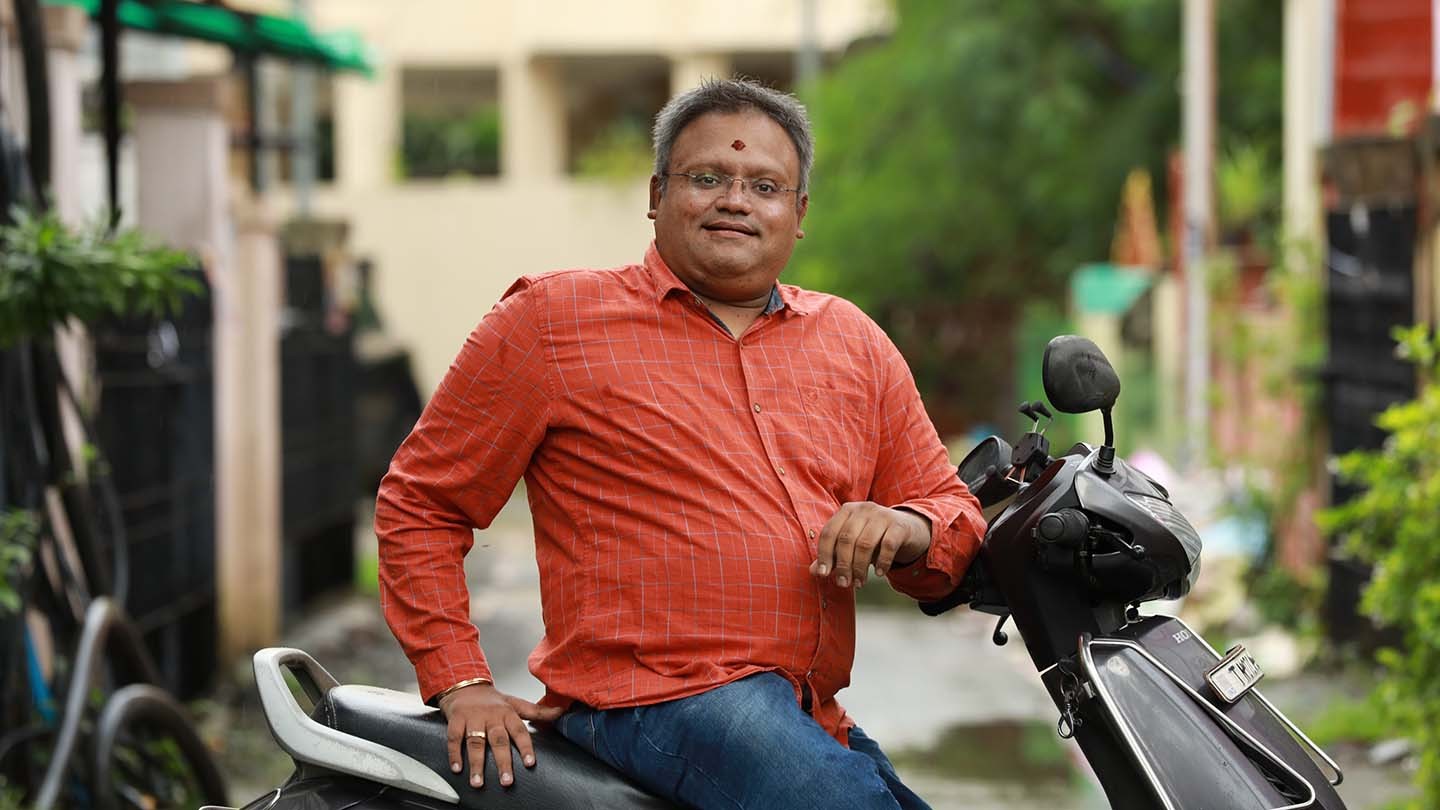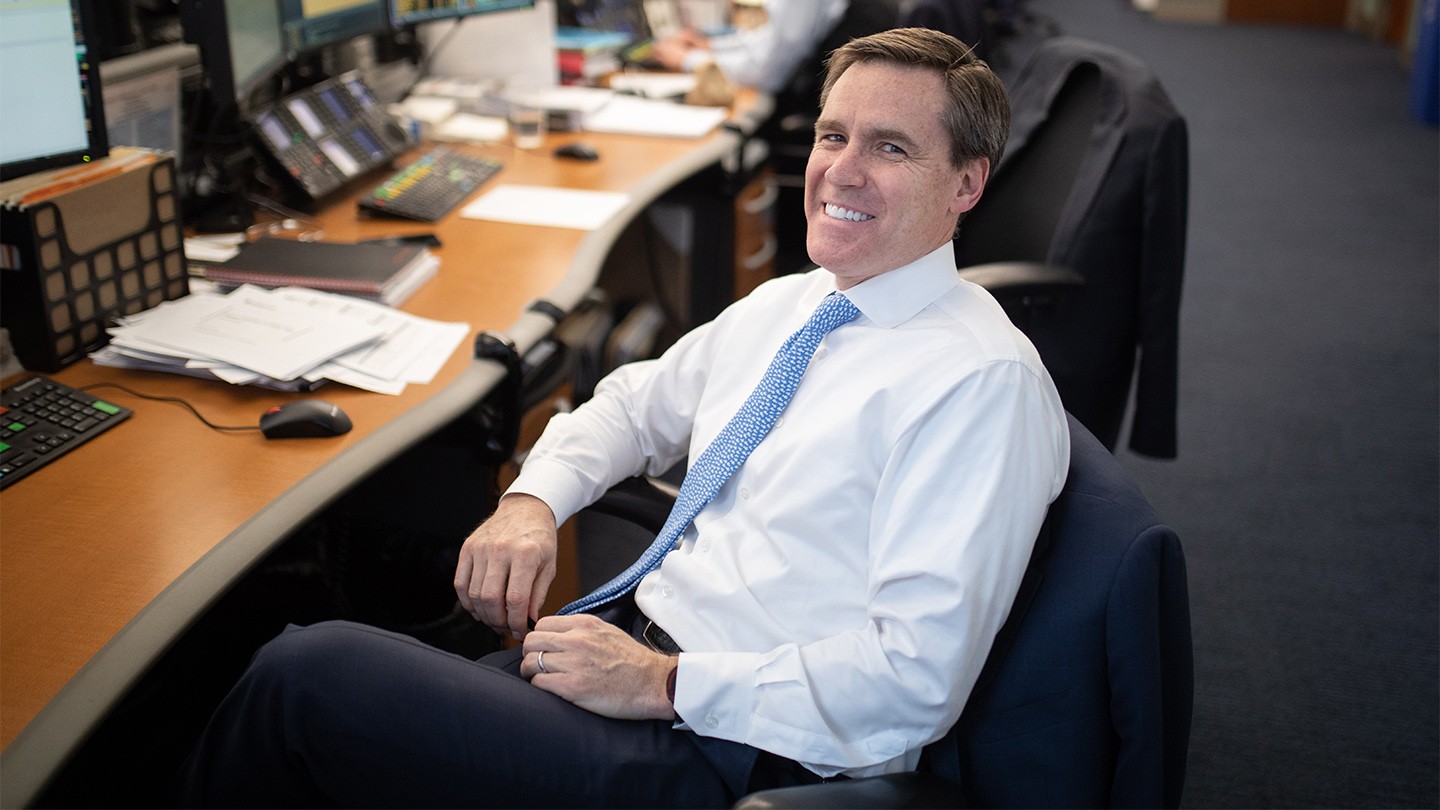
This is Me
Barclays is committed to building an open culture that is disability and mental health confident. This is Me encourages colleagues to tell their personal stories, changing perceptions of disability, mental health and neurodiversity in the workplace. It builds on sharing authentic stories that capture the whole person, and we provide the support and resources to help everyone to become more disability and mental health confident.
The confidence that comes from sharing a story
When Barclays colleagues started sharing their own stories around mental health and wellbeing in 2013, they didn’t anticipate the wider impact their campaign, This is Me, would have both within Barclays and in other businesses. We have also been instrumental in partnering with other businesses like PwC and This is Me set out to challenge the stigma around mental health in the workplace. The goal was to create an environment where colleagues can comfortably speak out about their own personal experiences.
The response to the campaign has been overwhelmingly positive, and in Barclays, the campaign grew to encompass all disabilities. From nine colleagues sharing their story in 2013, over 250 have now shared their personal experiences. We have seen some tangible results: the number of colleagues sharing that they have a disability, or a neurodiverse or mental health condition, has increased from 3% to 11%.
This is Me continues to be a driving force for challenging the stigma around disability and mental health by encouraging colleagues to share stories that improve understanding. In 2016 Barclays’ experience of This is Me was shared with the City of London’s Lord Mayor’s Appeal, with over 400 organisations taking part with the potential to reach over 3m employees.
Barclays continues to co-chair the This is Me steering committee under the auspices of the Lord Mayor’s Appeal charity. We have also been instrumental in partnering with other businesses like PwC and United Utilities to scale up the initiative outside of London. Since 2018, This is Me North West, West Midlands, Scotland, and Yorkshire, have been launched within the UK. In Asia, This is Me India has been set up, led by Community Business.
This is Me has had an impact in Barclays offices across the world. As a result of This is Me, Barclays has launched mental health peer support groups in the US and every major Barclays centre in the UK.
Colleague stories

Shagun Pathak is determined to raise awareness of how organisations can support employees with disabilities.
Shagun Pathak
“People are so surprised that despite being a person with a disability, I’m always smiling,” laughs Shagun Pathak. “My online friends, my work friends – they all feel inspired by me.”
Although she lives with the effects of neuromuscular scoliosis – a sideways curving of the spine – Shagun sees life as a series of opportunities. She loves dancing, socialising, travelling, and reading poetry as an open-mic artist, and she has no intention of letting her disability limit her horizons.
-
Describing herself as “a specially-abled girl who just happens to have impaired mobility”, Shagun joined Barclays in 2013 and currently works as a Process Advisor for the Barclaycard Solutions team at Barclays’ office in Noida, near Delhi, in India. She enjoys the job, and likes the fact that “the organisation is willing to listen to its employees”. She also has clear career ambitions.
“I would like the opportunity to take my team to the next level, and create career goals for them. And in five years’ time, I would like to reach a vice president role.”
Although Shagun’s condition makes moving independently a challenge – "It has been a struggle; I used to have to walk holding somebody’s hand” – she discovered the perfect solution on a holiday to the Gold Coast in Australia.
“I saw these elderly people, surfing down the street using rollators (walking frames with wheels), and I was like, ‘Wow, this product seems pretty cool. How about if I used it, too?’ So, I bought one for myself and brought it back to India.
“Now, there is next to nothing that I can’t do at home or at work. I am perfectly able to manage on my own.”
Shagun’s determination to find solutions to transform her own life is matched by her ambition to raise awareness of how Barclays, and other organisations in India, can support employees with disabilities.
“During lockdown, people experienced staying alone at home and not socialising much. But this is how many people with disabilities live the whole time – they are very familiar with feelings of isolation,” explains Shagun.
“We still live in a society where people think that a person with a disability might not be able to do certain things. And I really want to help change that mindset.”
Shagun has since become a voice for others, as part of the bank’s disability, mental health and neurodiversity colleague network, Reach – a commitment that has led to her twice being recognised at internal Barclays awards for colleagues.
“I am thankful to Barclays for the investment they make in everyone and how I can lead a normal working life,” she says. “All companies should learn from Barclays to engage with mobility-impaired individuals and nurture their professional aspirations, without preconceived notions about limits and boundaries.
“At my initial interview, my hiring manager had faith in me but what if he had doubted my abilities simply because I was a person with a disability? People with disabilities are perfectly capable of being productive, and we can deliver as much or more than any other employee.”

“It isn’t a weakness to ask for help,” says Barclays’ Annabel Jones MBE.
Annabel Jones MBE
Ten years ago, Annabel Jones was on a typical day at work with Barclays. But as she returned to her desk after lunch, she began to feel a searing pain in the back of her head and couldn’t see properly. Annabel was rushed by her line manager to a nearby GP surgery and eventually taken to hospital where doctors told her that, at the age of just 22, she’d suffered a stroke.
-
“I’d just graduated from university and started my career, and I was worried about what people would think,” remembers Annabel. After recovering in hospital, she found that the stroke had left her without central and periphery vision. She says the trauma of her stroke severely affected her mental health.
Yet she was under no pressure to return to work, with Barclays making sure Annabel was supported when she did. “They were amazing,” she says. “They told me to take as much time as I needed but I really wanted to get back to normal. Then when I returned to work, they made so many adjustments for me to make life as easy as possible. They told me I could do as much or as little as I wanted.”
It was after the UK charity the Stroke Association reached out and aided her in her recovery that Annabel saw an opportunity to raise awareness for the charity. “What started off as a bit of fundraising in the office led to some external charity events, and then it kind of snowballed.”
Now a Regulatory Engagement and Governance Manager in Barclays Partner Finance, Annabel has helped raise over £60,000 for the Stroke Association, as well as appearing on local TV, radio and newspapers to highlight the key challenges stroke survivors deal with.
Annabel’s work has also led to her representing stroke survivors as a member of the Welsh Assembly’s Cross-Party Group (CPG). She has addressed the Welsh Parliament, opening up about her journey to assembly ministers to advocate for improved emotional and psychological care for stroke survivors.
Annabel’s work with the Stroke Association led to her being awarded an MBE in 2019. She remembers learning the news from her fiancé, who was just as surprised as she was. “He panicked when he saw the letter and opened it because he thought I was in trouble,” she says.
She says one of the highlights of her work is being able to offer guidance to other young people with similar experiences. “That’s one of my favourite things about the work I do,” she says. “Using my experiences to help others who are going through what I went through.”
Annabel has been sharing her experience for Barclays’ This is Me campaign, developed to increase awareness of mental health and wellbeing in the workplace. Launched by the bank in 2014, the campaign is driven by employees with personal experiences of mental health and physical health concerns, contributing their stories in order to create an environment where employees feel comfortable sharing their experiences.
“I want everyone affected by stroke to know that life after stroke can be just as good – if not better – if you allow yourself the support to get there,” she says. “It isn’t a weakness to ask for help – a stroke survivor deserves a life after a stroke.”
Read more about how Annabel Jones campaigns for stroke survivors.
Sudharsan Lakshmanan
“There are a lot of myths about people with disabilities, and one of them is that we don’t want to talk about it.”
Sudharsan Lakshmanan works as a Control Business Partner for Barclays in Chennai, India, and has a locomotor disability as a result of being infected with polio when he was six months old.
-
“When I was a kid,” he recalls, “I was totally dependent on my parents, and they carried me everywhere.” He says that getting a mobility scooter at around 16-years-old was “a life-changing moment that let me move on my own and explore the world. It gave me more confidence and independence.”
As he grew, Sudharsan became determined to “prove to the world that disability doesn’t stop you at work”. After starting at Barclays, he joined Reach, the bank’s disability, mental health and neurodiversity colleague network and is now Co-Chair of the Chennai chapter.
Speaking about his experiences through the bank’s This is Me campaign has become an important part of his role, and he hopes his story offers inspiration for others.
“It’s not so much about talking about myself, it’s about giving confidence to others with disabilities – making someone think, ‘If he can do well, so can I’. And that’s not just people with disabilities, but also colleagues who are bringing up children with disabilities. To them, I could be a person who can be looked at as someone who is a good example.”
Talking openly at work can also help change attitudes and ensure the needs of disabled colleagues are met and their views heard, he says. “Sharing experience helps a lot. What does the person with disability need and what do they not need? It’s not sympathy that we need, it’s empathy – knowing support is there is what gives confidence, rather than being sympathetic.”
Sudharsan describes This is Me is an example of Barclays’ “openness to talk”, and shows “how seriously concerns are taken and how quickly they are acted on”.
He continues: “People come and talk to me and say they are inspired by my story, or that it’s made them think differently about people with disabilities. That gives me a sense of accomplishment that I’ve done something for society. That’s why This is Me is so important.”

Barclays’ Sudharsan Lakshmanan says people with disabilities need support rather than sympathy.

Barclays’ Michael Nartey says openness is key when dealing with health issues at work.
Michael Nartey
“There’s a lot of talk about bringing your whole self to work,” says Michael Nartey, who works in securitized products distribution at Barclays Corporate and Investment Bank. “If I come to work and people know what my issues are, then most people are understanding and cut you the slack you need.”
Michael, who is based in London, has sickle cell anaemia, a condition that particularly impacts people with African or Caribbean family backgrounds. It means that his red blood cells are sickle shaped rather than round, which impacts the cells’ ability to carry oxygen around the body and can cause intense pain.
-
“Once you know that,” says Michael, “you have to think carefully about what you do. If I exercise aggressively, I can have what’s called a ‘crisis’ in which I could be in bed for two weeks.”
Although he was diagnosed with sickle cell as a child, Michael says he didn’t have his first “crisis” – an episode of severe pain caused by blocked blood vessels that can last up to seven days – until his early twenties. “I don’t have the worst form of sickle cell anaemia,” he explains. “If I look after myself, I can manage the condition.”
He says his approach has always been to be open about the condition in the workplace, “because if people don’t know, they can’t help.”
Michael discovered Barclays’ This is Me campaign when he was on a panel during Black History Month. “Somehow sickle cell came up,” he recalls, “and afterwards I got a bunch of emails from Black colleagues about it, including information about This is Me.
“It’s super important that everyone has the dialogue. Ten or 20 years ago, people hid things more, but today you should be able to sit down with your bosses and colleagues and tell them your issues.”
He says This is Me has given him more appreciation of other conditions that his colleagues are living with. “You always think about yourself and your issue, and think everyone else is racing through life,” he says, “but lots of people have lots of issues.”
For Michael, it’s this dialogue that will ultimately make any business stronger, including Barclays. “To an extent the onus is on the employee to educate the employer, and to bring in those different perspectives, whether it’s about mental or physical health, or any other type of diversity.”
Peter Toal
Twelve years ago, when Investment Bank Managing Director Peter Toal was seeing a therapist close to his Manhattan office, he would “sneak out, pretending I was going to lunch or had a meeting” to his other colleagues. Peter was suffering from a period of anxiety and depression which was impacting his working life, yet he didn’t feel able to share this with his colleagues.
“I was hiding it, and I think most people at the time would have done the same thing,” he says. “At the time, I thought therapists were for weak people who couldn’t handle the daily stresses of life. I now know how ignorant that view is.”
-
While mental health at work is now much better understood, Peter says that, at least in his field, that hasn’t always been the case. “Historically the feeling had been, ‘I can handle it and can’t show any weakness or any vulnerability, because then I won’t look as good as the next guy,” he says.
Now co-head of the Global Fixed Income Syndicate at Barclays Investment Bank in New York, Peter has become a leading figure in tackling the stigma around mental health. When he heard about Barclays UK’s This is Me campaign, which aims to increase awareness of mental health and well-being concerns, he asked if there was a similar group in New York. “I was told, ‘There isn’t such a group in NY, but if you want to start one, then go ahead.’”
From there, the US Mental Health Awareness Group was born. Through Reach, the disability, mental health and neurodiversity network for colleagues, Peter and his team have worked to create a supportive work culture and start conversations around mental health at work. This has involved bringing in speakers, hosting awareness events and even creating a dedicated daily space for meditation.
Adapting to the pandemic with virtual sessions has actually strengthened the group. “One benefit of doing this over the phone is that we can reach a geographically broader audience, since employees in other locations can dial in,” says Peter. The group has proved a success, with hundreds of Barclays colleagues now signed up.
“What we’re trying to do at Barclays is build a culture where it’s fine to take care of yourself,” says Peter. “We want it to be a safe environment, where there are diverse people, where it’s okay to admit vulnerability. We all have stresses in our life, and we need a culture that is open to that.”
Despite the progress made, Peter knows that there’s still work to be done on the stigma surrounding mental health, with his 16-year-old son having experienced “significant mental health issues.”
“Seeing my son struggle every day in social situations is heart-breaking and eye-opening. It is an issue that needs more discussion.”
Going forward, Peter hopes to expand the network and continue to improve Barclays’ overall mental health awareness, promoting a desirable work culture that will help the business grow in the future. “As we look to attract the best people, it’s important that we’re not only diverse from gender, sexual orientation and racial and ethnic perspectives, but that we welcome people with disabilities, whether in physical or mental health.
“If you have talent, we want you to know that Barclays is an open culture with accommodations for you, and where you don’t have to hide who you are.

“We want a culture where people feel safe in being yourself," says Barclays’ Peter Toal.